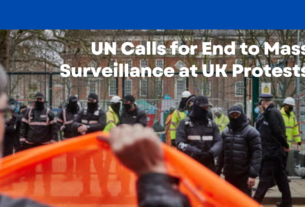New data has revealed a troubling disparity in the uptake of the human papillomavirus (HPV) vaccine among school pupils in the UK, with children from the most deprived areas significantly less likely to receive the life-saving jab compared to their peers from more affluent backgrounds. The vaccine, which protects against cancers caused by HPV – including cervical, throat, and anal cancers – is offered to all pupils aged 12 to 13. Despite its proven effectiveness, uptake rates are alarmingly uneven across socioeconomic lines, raising serious concerns about long-term health inequality.
Figures published by public health authorities show that while more than 80% of pupils in wealthier areas have received the HPV vaccine, coverage drops to just over 60% in the most deprived communities. The gap is even wider in some urban areas, where logistical challenges, misinformation, and lower engagement with health services have compounded the problem. Health experts warn that these disparities could result in a higher future cancer burden in disadvantaged populations, reinforcing cycles of poverty and ill health.
The HPV vaccine is typically administered in schools as part of the national immunisation programme. However, experts say that in many deprived areas, school absence rates are higher, and parents may be less likely to return consent forms or engage with the vaccination process. Cultural and language barriers, as well as mistrust of medical institutions, can also play a role. The COVID-19 pandemic further disrupted immunisation efforts, with some pupils missing appointments altogether during lockdown-related school closures and never receiving a follow-up.
Campaigners and public health advocates are now urging government agencies to implement targeted outreach programmes to close the vaccination gap. Proposals include sending mobile vaccination units into communities with low uptake, improving information campaigns in multiple languages, and engaging trusted community leaders to build confidence in the vaccine’s safety and benefits. Teachers and school nurses are also calling for more support to ensure that all pupils have equal access to essential healthcare.
The disparity in HPV vaccine uptake highlights a broader issue within the healthcare system, that access and outcomes are often shaped by socioeconomic status. Unless addressed, this inequality could lead to preventable cancers disproportionately affecting those already facing the greatest health and economic challenges. Bridging the vaccine gap is not only a matter of public health, but of fairness and social justice.




